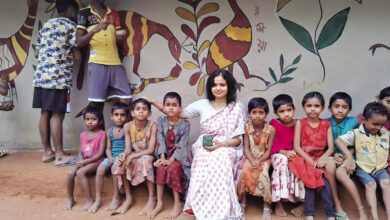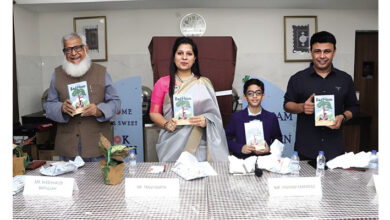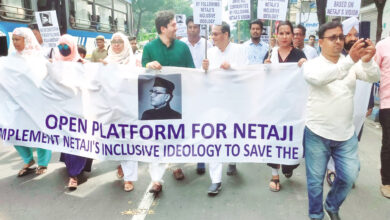THE INVISIBLE SCARS
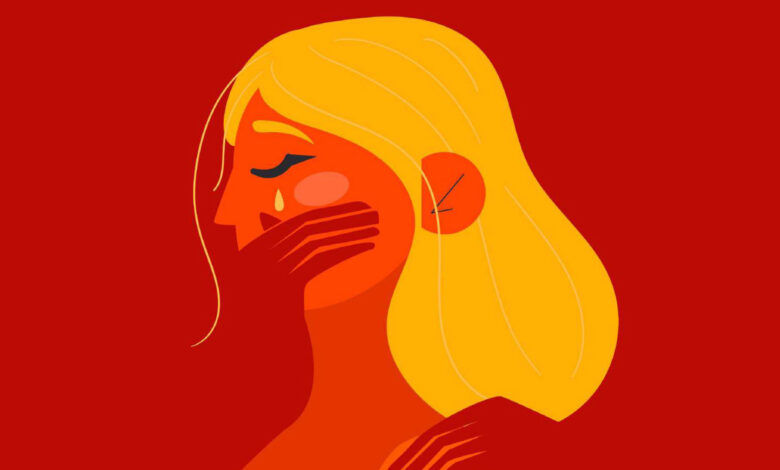
Ekta Viiveck Verma
Social Entrepreneur and GBV Specialist Founder – Invisible Scars Foundation and Poorn Viraam Core Member -TEDx Hyderabad
Some things cannot be taught; they must be experienced. You never learn the most valuable lessons in life until you go through your journey. ― Roy T. Bennett It was a few years before 2016. I had started facing emotional abuse from a very close family member.
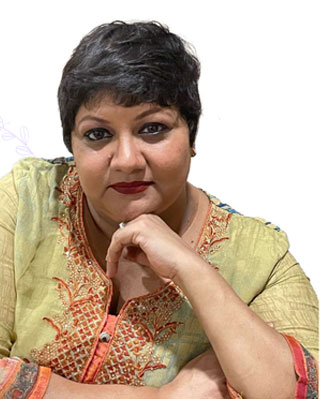
It was extremely frustrating. I wanted to do something about it but felt very helpless. At first, observing the abuser puzzled me. I did not understand their behaviour. It felt off but I didn’t know why. Nothing worked to make this better. No amount of love or respect was helping. It almost seemed like things were getting worse, because if one person in a family is facing abuse, then the ripple effect of it is felt across the entire family. Well, I am someone who wants to keep learning, so I did the simplest thing I could at the time – I googled for information about such kind of behaviour. It didn’t take me long to identify that all this was abusive behaviour. It was a very lonely time. I wasn’t sure who to talk to or where to go. However, past experiences of my life had taught me that trying to survive in a toxic environment, with no one to turn to could be a very lonely experience.
After all, most of my childhood and young adult life was spent living in a community of emotionally abusive folks. Now the thing is that, in this community, emotional abuse was always minimized as “gharelu jhagda” and to speak about it openly was an abomination. It was accepted as a part and parcel of a woman’s married life, and it was expected. Both sides of the couple’s family were prepared and it was transferred from generation to generation. No one cared about breaking the cycle. I also grew up normalizing emotional abuse but had firsthand seen the impact it had on the mental health of people it impacted.
This experience made me think, were there others like the women I had been around? Others didn’t have a safe space to speak up and vent. I knew that emotional abuse was not restricted to women in the lower socioeconomic class, it was all-pervasive but was swept under the carpet in economically better homes. The abuse itself was permitted and encouraged by family members, just talking about it was not acceptable. Exposing an abuser and speaking up to defend oneself was the problem, not the abuse itself. This is what prompted me to start the ‘Invisible Scars’ group on Facebook.
At the time, Invisible Scars was just a place where women could join and vent out if they were having a bad day. Despite all the opposition and the naysayers, I created the group. However, it wasn’t at all like what I had expected. Nobody was ready or willing to speak up and our group remained stagnant for almost a year. I thought maybe I posted some article or information about domestic violence and abuse; it would resonate with the members of the group and then the conversations would start. But still nothing! I didn’t let this bother me. I kept posting because I knew women were watching. I realized that our strength was growing, and no one was leaving the group and so I was hopeful that it would work out someday.
It is 2023, and Invisible Scars is now Invisible Scars Foundation. We have helped more than 2000 survivors of domestic violence and abuse directly and have touched the lives of more than 20,000 people indirectly. These survivors are from across the length and breadth of the country and even from outside India. We have done more than 200 awareness and training sessions to date, we have skills and provide financial relief, legal aid, and counselling help to survivors of DVA survivors through our Domestic Abuse Relief Fund. We have a very active social media presence. Invisible Scars always had its presence online and to date, we don’t have a physical space. My dining table continues to be my office. During the lockdown, we were able to help survivors trapped in their homes by reporting the abuse, relief material and money they needed because we had figured out how survivors could be supported remotely. Our team now consists of 6 people, all based remotely. We are bootstrapped and have begun scaling our operations. Our work is gender-neutral and we have supported, male survivors of abuse as well as members of the queer community facing abuse in their relationships. We want all the work we do at Invisible Scars Foundation to be powered by technology, as we believe very strongly in the power of technology and its ability to touch lives in every nook and corner of the world. The mission of the Invisible Scars Foundation is to create a uniform, compassionate, inclusive, and connected ecosystem of support, transcending geographic boundaries so that no abuse survivor ever goes without the help they need.
Our vision is to empower and support abuse survivors across the country and beyond borders.
All I can say is that I am grateful for all the direct and indirect lessons that life taught me. At the time they didn’t seem important, but they all added up to what I am doing today. One more thing, nothing is ever possible without a team. Having people who stand by you and believe in you, makes the journey worthwhile. So, while we are trying to scale the organization and grow it, the little victories are what matter. Every phone call, and every message, that tell me a survivor has made it through the day, makes the battle worth fighting for.


